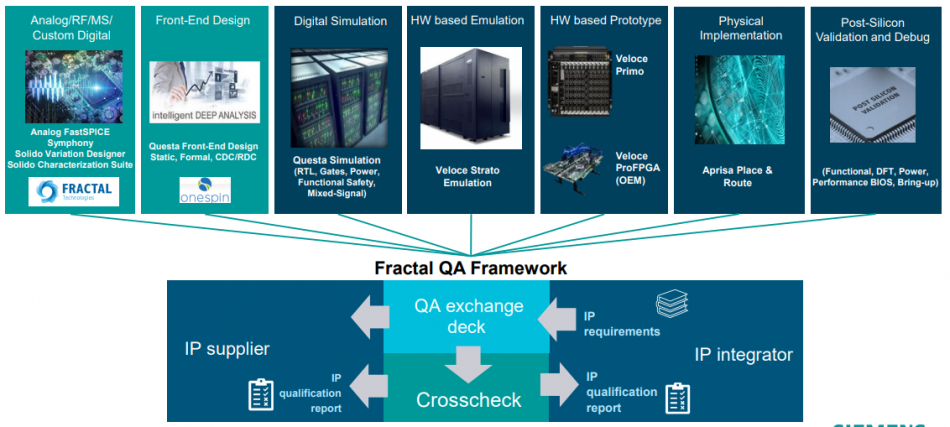Siemens extends Solido’s reach into IP validation with Fractal
Siemens Digital Industries Software has bought IP validation specialist Fractal Technologies to build out the machine learning-based Solido product line within its Xcelerator portfolio.
Fractal, based in the US and Netherlands, has developed 350 validation and comparison checks already used for quality assurance and during the integration of third-party and internally-developed IP throughout the design flow. Its customers include foundries, IDMs and IP suppliers as well as fabless design companies.
The checks complement the characterization and variability analysis features within Solido. Fractal’s technology will be added as Solido Crosscheck; it is currently sold as Crossfire.
Third-party IP and that created by in-house teams have been ever more widely used to gain efficiencies and speed time-to-market as the differentiated aspects of electronics system design have become more complex. However, the integration and validation process is itself becoming more challenging.
Fractal’s validation technology seeks to address the problems now arising in terms of both cost and time-to-market perspectives, as well as guarantee the quality of both IP blocks and the overall design within which they are used.
IBS has estimated that the cost of IP qualification alone for a 100 sq mm project targeting 5nm processes has now reached $40M. Meanwhile, the effort involved generally can be considerable, according to Amit Gupta, general manager for Solido within Siemens IC verification strand.
“What we’ve been hearing more and more from customers is that the validation time is taking a significant portion of the overall design cycle,” he says. “So for example, in library characterization, where it used to take maybe 20, 25% of the time, now it’s taking half the time to just do validation.”
Many companies have developed their own validation checks though this can be time-consuming (as a side note, existing proprietary or in-house developed checks can be reused and added to Crosscheck via an API).
A further factor is that validation must take place across multiple views (logical, physical, timing and so on) and account for both those stages discretely and how they interact.

How Fractal enables IP validation across IC verification and implementation flows (Siemens – click to enlarge)
Going forward, the plan is to increase investment in Fractal’s check portfolio and apply further machine-learning acceleration using Siemens resources, and integrate this latest buy across the EDA platform.
Fractal is the eighth EDA acquisition Siemens has made since buying Mentor Graphics – Solido itself was acquired in November 2017 – and the company says it is not done yet.
“There are still gaps to fill, new white spaces to go after,” said Ravi Subramanian, senior vice president for IC verification. He said that three themes combine to offer it “target-rich” areas: the way the cloud is rewriting EDA, how machine learning and artificial intelligence are influencing tools as well as design, and the digital twin.


